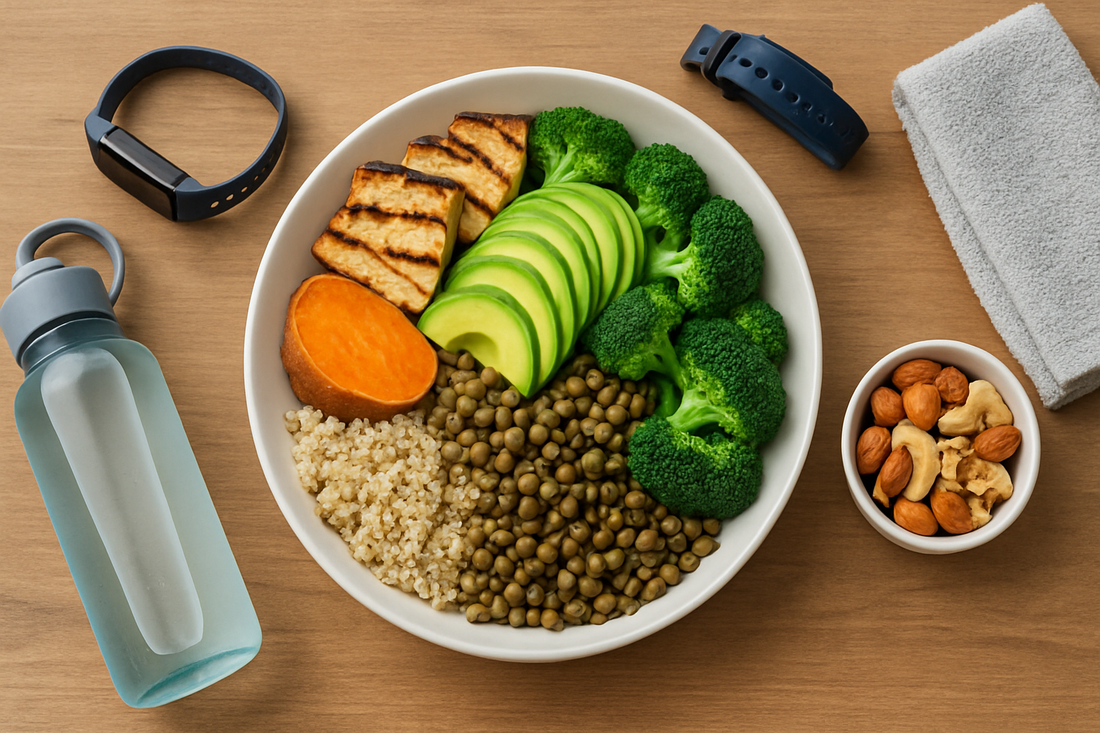
Essential Nutrients for Active Lifestyles
Share
Introduction
Staying active requires more than just regular workouts—it demands smart nutrition. Whether you're a runner, cyclist, gym enthusiast, or simply love staying on your feet, fueling your body with the right nutrients is crucial. This guide will walk you through the essential nutrients that support energy, performance, and recovery in your daily life.

Why Nutrition Matters for Active People
When you're physically active, your body burns more calories, depletes nutrients faster, and demands higher energy levels. Without proper nutrition, you may experience fatigue, slower recovery, or muscle breakdown. Prioritizing nutrient-dense foods helps you stay energized, prevent injury, and perform at your best.
1. Protein – For Muscle Repair and Growth
Protein plays a key role in building and repairing muscle tissue. It also supports immune function and hormone production. Active individuals should aim to include sources like:
- Legumes
- Lentils
- Chickpeas
- Tofu and tempeh
- Quinoa
Including plant-based protein in every meal helps maintain lean muscle and supports recovery after workouts.
2. Complex Carbohydrates – Your Body’s Primary Energy Source
Carbs often get a bad rap, but complex carbohydrates provide steady energy and replenish glycogen stores post-exercise. Opt for:
- Sweet potatoes
- Brown rice
- Oats
- Whole grains
- Fruits and vegetables
These sources are rich in fiber, which also aids digestion and keeps you full longer.
3. Healthy Fats – For Long-lasting Energy and Joint Health
Fats are essential for absorbing fat-soluble vitamins (A, D, E, and K), supporting brain health, and reducing inflammation. Choose:
- Avocados
- Nuts and seeds
- Olive oil
- Chia and flaxseeds
Incorporating omega-3 fatty acids helps reduce post-workout soreness and supports heart health.
4. Vitamins and Minerals – For Recovery and Overall Wellness
Active lifestyles demand higher levels of micronutrients. Key vitamins and minerals include:
- Iron – supports oxygen transport and stamina (found in spinach, legumes, pumpkin seeds)
- Magnesium – supports muscle relaxation and reduces cramps (found in nuts, leafy greens)
- Calcium – essential for strong bones and muscle contractions (found in fortified plant milks, kale, sesame)
- Vitamin C – boosts immunity and supports tissue repair (found in citrus fruits, peppers, broccoli)
5. Hydration – Often Overlooked but Vital
Even mild dehydration can impair physical performance. Water supports every cellular process in the body. For intense activities, consider:
- Coconut water for natural electrolytes
- Infused water with lemon, cucumber, or mint
- Hydrating fruits like watermelon, oranges, and cucumbers
Final Thoughts
Nutrition is the foundation of any active lifestyle. Focusing on whole, unprocessed foods and making sure you're getting enough protein, complex carbs, healthy fats, and essential vitamins and minerals can help you stay energized and recover faster. Remember, it's not just about eating more—it's about eating smart.
